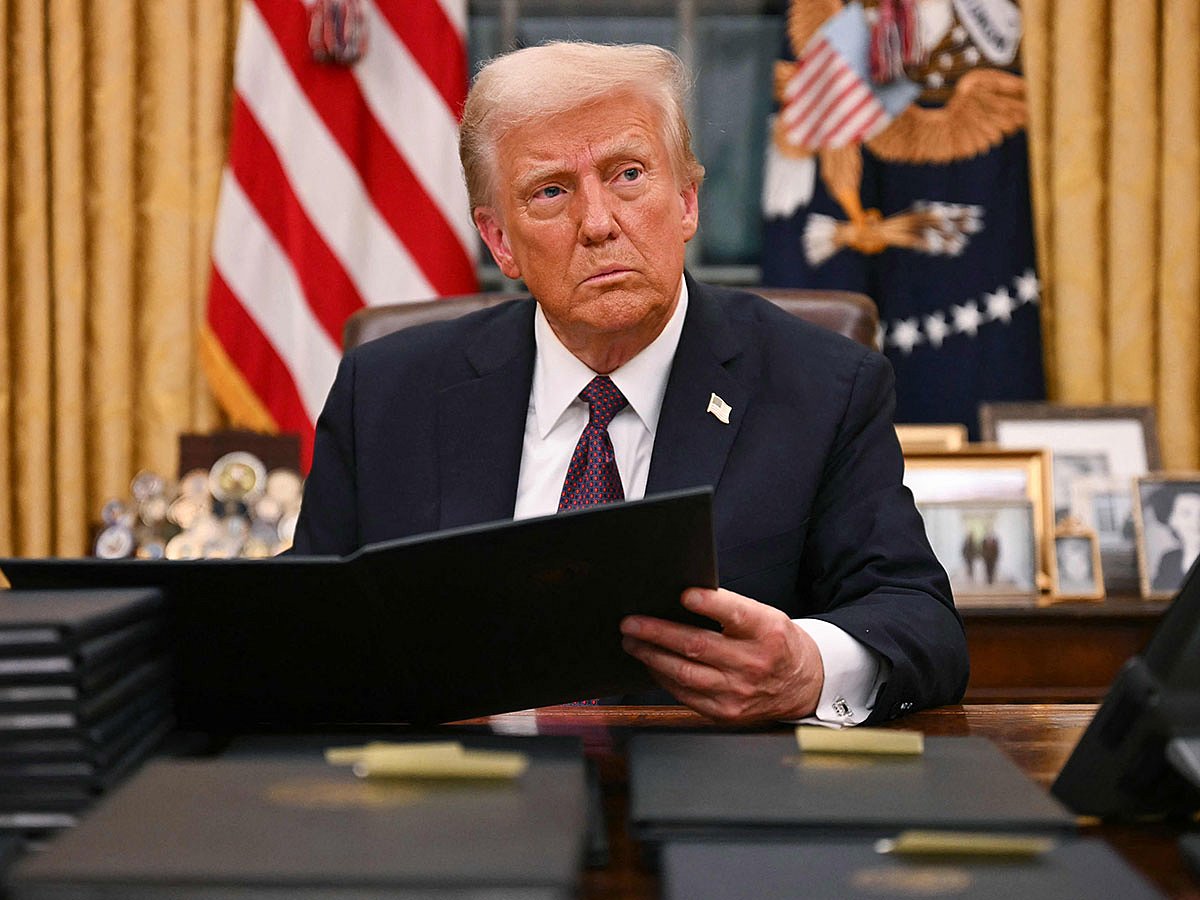Trump's 100% tariff on chips: How US tech can get costlier for UAE shoppers
How Trump’s tariff on foreign semiconductors can spark global price hikes in electronics

Dubai: A sweeping proposal by U.S. President Donald Trump to impose up to 100% tariffs on imported computer chips and semiconductors is raising fresh concerns over a potential global surge in the prices of electronic goods—from smartphones and laptops to household appliances and cars.
Trump announced the plan during recent meeting with U.S. tech leaders, including Apple CEO Tim Cook and Nvidia CEO Jensen Huang: Trump met with the. Trump indicated that foreign-made semiconductors would be subject to steep import duties, while companies producing chips within the United States would be exempt.
“If you’re building in the United States, there’s no charge,” Trump said.“But foreign-made chips will face tariffs of up to 100%.”
Who's affected — who’s exempt?
Trump's proposal largely spares firms already investing in U.S. chip production. Taiwan Semiconductor Manufacturing Co. (TSMC), Samsung Electronics, and SK Hynix—all of whom are building or operating U.S. facilities—have reportedly received unofficial exemptions. U.S. chipmakers like Intel and Nvidia are also expected to avoid the tariffs due to their domestic production capacity.
However, most global electronics are still assembled in Asia, often using chips made in Taiwan, South Korea, or China. With over 90% of Apple’s iPhones assembled in China and packed with globally sourced semiconductors, even U.S.-based tech firms could see costs rise unless they restructure their supply chains—a process that could take years.
Global supply chains to feel heat
US tariffs on semiconductor imports will eventually lead to higher prices for exports from tech companies and electronics manufacturers worldwide, including in the UAE.
Disruption to global supply chain: The semiconductor industry relies on a complex, highly integrated global network. Tariffs on critical components like chips can upend this system, forcing manufacturers to seek new—often costlier—suppliers or reconfigure production lines.
Increased production costs: When tariffs drive up component costs, those increases often cascade down the supply chain to the final product. This means higher production costs for items like smartphones, computers, and home electronics, which are either absorbed by companies or passed on to consumers.
Global ripple effect: Even companies not directly exporting to the U.S. may be affected. A UAE-based electronics assembler, for instance, may rely on chip suppliers from countries heavily impacted by the tariffs. As their input costs rise, so too could the price of the UAE’s finished exports.
Impact on the UAE: While the UAE is not a direct exporter of semiconductors to the U.S., it plays a vital role as a global trade and re-export hub. If global electronics prices rise due to elevated component costs, the UAE’s import and export prices could also increase, affecting businesses, retailers, and consumers alike.
Policy shift or economic risk?
Trump’s tariff plan signals a shift from the current U.S. strategy of incentivising domestic chip production through subsidies like the CHIPS Act, in favour of more aggressive protectionist tools. Critics warn that:
Tariffs often result in higher prices for consumers, not foreign suppliers.
Semiconductor fabs take years and billions to build, making short-term supply shifts unlikely.
Global tech firms may relocate manufacturing elsewhere, not necessarily to the U.S.
Analysts note that the global semiconductor market grew nearly 20% year-on-year through June, underscoring how vital these components are to the modern economy.
Bottom line
Trump’s proposal to impose up to 100% tariffs on imported chips may aim to bolster U.S. production, but its immediate consequence would likely be higher costs across the global tech industry, straining supply chains and inflating prices on everything from smartphones to vehicles.
For economies like the UAE—integrated deeply into global trade routes and electronics flows—the effects may be indirect but far-reaching, as the cost of doing business in tech and trade rises worldwide.
Sign up for the Daily Briefing
Get the latest news and updates straight to your inbox
Network Links
GN StoreDownload our app
© Al Nisr Publishing LLC 2026. All rights reserved.
